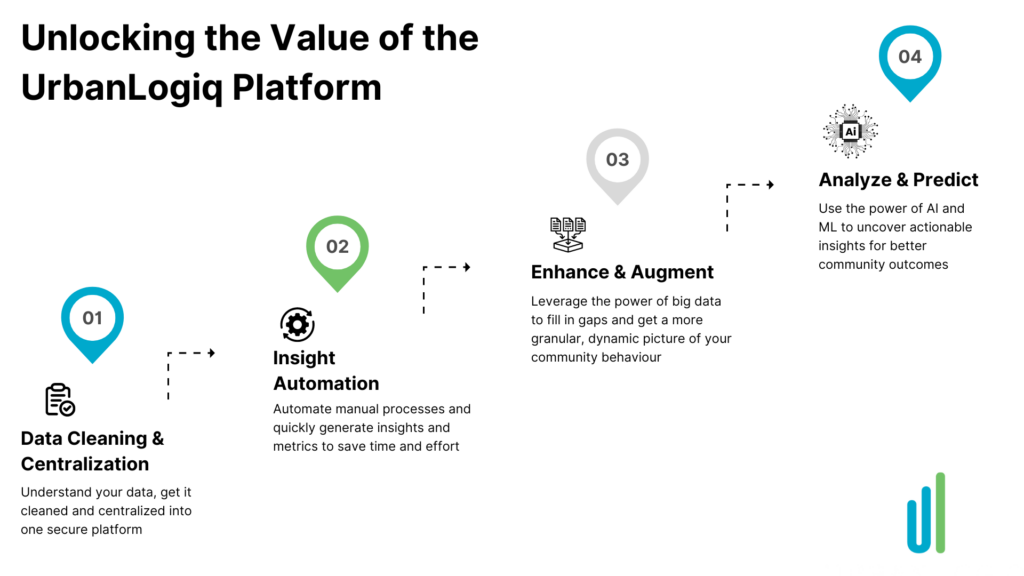Conquering the AI Adoption Gap in Government: A Roadmap to Success
The promise and potential of Artificial Intelligence (AI) to revolutionize public services is clear, yet its adoption in government remains slow. While governments recognize AI’s transformative potential, practical challenges have stifled progress, leaving many agencies stuck at the intersection of strategic goals and feasible implementation. A recent study, conducted by SAS in partnership with Civil Service World, and a FedScoop analysis of documents shared with the White House highlight the common hurdles that impede AI integration.
Key Barriers to AI Adoption
Several common barriers prevent governments from fully leveraging AI:
Financial Constraints
Budget limitations top the list of obstacles. In the SAS study, two-thirds of surveyed officials cited financial constraints as the primary roadblock. The costs associated with AI infrastructure, talent acquisition, and ongoing system maintenance can be prohibitive, especially for agencies operating on tight public-sector budgets.
Skills Deficit
A shortage of in-house technical expertise is another significant barrier. Governments often struggle to attract and retain talent, and many agencies lack specialized data science teams to develop and implement AI solutions effectively. Without the right talent, whether it be in-house or contractors, AI initiatives can falter before they even begin.
Outdated Infrastructure
Many government agencies rely on legacy systems that were not designed to support modern AI technologies. These outdated systems can’t handle the complexities of AI integration, such as data processing and analytics, without costly and time-consuming upgrades.
Data Complexities
Data management is a multifaceted issue. Fragmented systems, data quality concerns, and non-standard records create a significant barrier to AI implementation. Moreover, data security and privacy concerns must be addressed to build trust in AI-driven solutions, especially when handling sensitive citizen data.
Overcoming the Barriers: A Strategic Approach
Despite these hurdles, governments can take tangible steps to overcome these barriers and accelerate AI adoption:
Prioritize Investment
Governments must recognize that adequate funding is essential to support the infrastructure upgrades, access to talent, and continuous maintenance required for AI implementation. Strategic investments in AI can lead to significant long-term savings and efficiencies.
Foster Skills Development
Upskilling existing staff and retaining access to AI talent should be a top priority. Partnering with organizations like UrbanLogiq can provide access to the necessary expertise and technology, ensuring that governments have the tools and knowledge required to implement AI effectively.
Modernize IT Infrastructure
Upgrading legacy systems is vital for ensuring compatibility with modern AI technologies. Governments should focus on flexible, scalable IT infrastructure capable of integrating AI, which will allow for seamless data processing and system interoperability.
Champion Data Integrity
High-quality, well-organized data is essential for AI to function optimally. Governments must treat data as a strategic asset, investing in robust data governance practices. This includes breaking down data silos, ensuring data quality, and addressing privacy and security concerns. UrbanLogiq’s full-stack platform offers solutions by enabling seamless data integration, quality control, and robust security measures.
Focus on Auditability and Ethics
Concerns about privacy, security, and the ethical implications of AI must be at the forefront of government initiatives. Prioritizing transparency and accountability in AI deployment helps build public trust. For example, UrbanLogiq emphasizes the development of auditable and understandable AI outputs while adhering to strict privacy and security standards.
Start Small, Iterate Often
Rather than diving into large-scale AI projects, governments should begin by identifying specific use cases with high potential for impact. Starting small allows for learning, adaptation, and scaling up successful initiatives over time, ensuring a more sustainable and controlled approach to AI implementation.
Foster Collaboration
Collaboration between government agencies, private sector partners, and academia can drive innovation and knowledge-sharing in AI. Programs such as the GovAI Coalition facilitate these partnerships, providing opportunities for governments to leverage external expertise and resources.
How UrbanLogiq Closes the Adoption Gap
UrbanLogiq is committed to helping governments conquer the AI adoption gap. Our comprehensive all-in-one platform is designed to address the challenges of AI implementation in the public sector by providing:
- Data Integration
Our platform breaks down data silos and enables seamless integration of diverse datasets, ensuring accessibility, consistency, and reliability for AI applications. - Data Security and Compliance
With built-in security measures and adherence to ethical standards, our platform provides out-of-the-box compliance to the strictest privacy and security standards. It also safeguards data integrity, allows for permission-based access and encrypts the data at rest and in transit. We take a proactive approach to mitigating risks related to privacy and security. - Informed Decision-Making
UrbanLogiq empowers governments to harness the full power of their data, enabling more efficient, transparent, and data-driven decision-making. This ensures that public servants can do their job better and have the insights they need to improve public services and meet strategic goals.

The road to AI adoption in government is not without its challenges, but by addressing issues such as skills deficits, outdated infrastructure, and data complexities, governments can unlock AI’s transformative potential. A strategic and multifaceted approach, combined with the right partnerships and technologies, can help governments bridge the AI adoption gap and deliver better outcomes for citizens.
Ready to take the next step?
Talk to our team and let’s explore practical strategies and solutions tailored to help your agency navigate the complexities of AI implementation.



